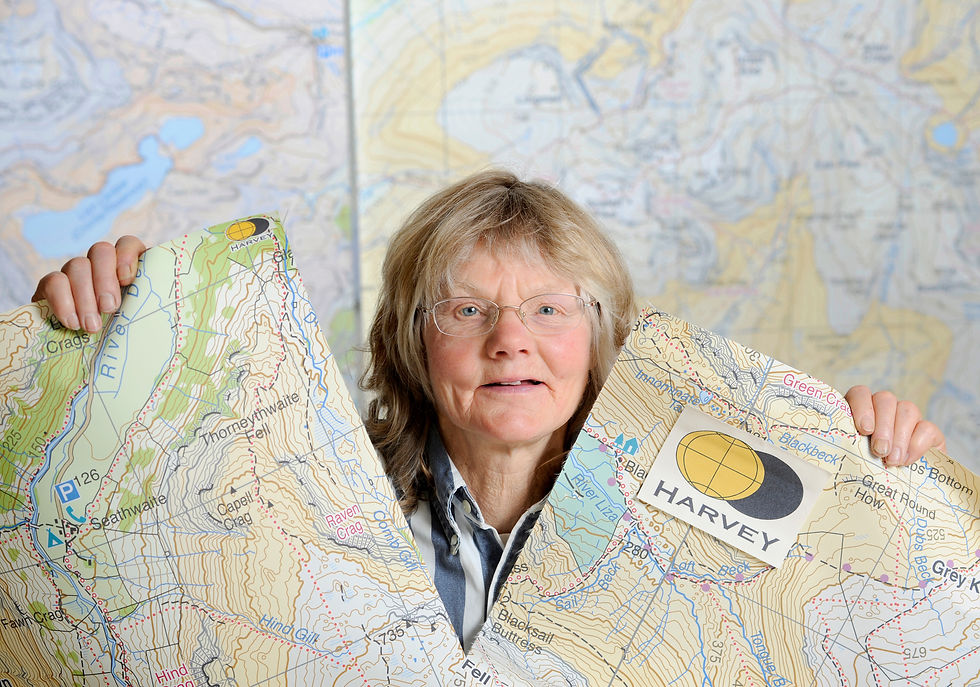Women-led employee-owned businesses lead the way
- Oct 26, 2018
- 4 min read
The appetite for employee ownership has never been greater. The number of employee–owned businesses in Scotland has trebled in the past five years – and in the past year we have averaged a ‘deal a month’. There are now around 100 employee-owned companies operating in Scotland, with approximately 7,000 employee-owners, generating a combined turnover of around £940million. That’s great news for businesses, for employees and for Scottish communities – and all indications are that the numbers will continue to grow year on year.
Employee ownership gives employees a meaningful stake in their company together with a genuine say in how it is run. It also roots businesses and jobs in Scotland, drives performance and delivers economic wellbeing.
Research by Women’s Enterprise Scotland shows that if the number of women-led businesses increased to equal those of men, our national bank balance would be at least 5% better off. It’s great to see this number growing within the employee ownership sector, with many of the companies that made the move to employee ownership over the last couple of years being run by women.
Some great examples of those are as follows.
Arran’s award winning Auchrannie Resort; it has two 4-star hotels, 30 5-star self-catering lodges, two leisure clubs, three individually branded restaurants, a children’s Playbarn, an ASPA spa and Arran Adventure outdoor company. It was established by Iain and Linda Johnston in 1988, with Linda heading up the company as managing director and board chair since 2010.

Auchrannie recently completed its transition to become an employee-owned business, with 160 members of staff becoming owners. It marked the first time a hotel or resort in Scotland has become employee-owned. It was important to Linda that the ethos of the company, the existing team, and the community use of Auchrannie’s facilities for future was protected – and that her team could play a huge part in shaping and influencing the future success of Auchrannie. Those were the drivers in deciding that employee ownership was the way forward for the company.
Founded 40 years ago by Robin Harvey MBE and Susan Harvey MBE to provide a professional mapmaking service for the sport of orienteering, Doune-based Harvey Maps is one of a very small number of companies in the UK to generate its own map data, becoming a market leader in maps for outdoor pursuits such as hill walking and mountain marathons.

As Susan looked towards her future retiral, she felt it was important that the business they had built up over the years did not disappear or be swallowed up by a competitor – she wanted to retain the jobs locally and implement a succession solution which would give the company the best chance of continued independent existence and success. That’s why it also recently joined the growing number of businesses in Scotland to adopt the employee ownership model, with ten staff given the opportunity to become owners.
Social care provider Caledonia Social Care is another of Scotland’s businesses that has adopted the employee ownership model. It focuses on care at home support, including the provision of dementia specific services alongside personal care to older, disabled and vulnerable people.
Managing director Margaret Paterson believed that employee ownership was particularly suited to

the social care sector, as it is consistently shown to improve staff engagement and wellbeing – which in turn can lead to better patient experience and outcomes. She also cited the fact that as owners, employees have a say in how the business is run, and clients and their families are reassured that the business will remain rooted in the area and be run for the benefit of local people. Some fantastic reasons to embrace the employee ownership model.
Glasgow-based architects Page \ Park appointed Karen Pickering as its chair of the board of directors following its transition to employee ownership.
Karen Pickering has been with the company for 27 years and is well respected in the profession for her enthusiasm and support for exciting architecture across a wide range of fields. That energy and drive to ensure the best possible architectural outcomes has continued in her new leadership role as chair of the practice. She states that the transition to an employee-owned business boosted productivity and increased engagement. The team members are no longer ’wage earners’, they are ‘company owners’ and that has brought about greater engagement, productivity, energy, drive and pride – a great endorsement of the employee ownership model.

Jennifer Riddell–Dillet is the managing director of Novagraf, a brand realisation company based in East Kilbride. The company has the motto – ‘we think differently’, and that’s why it has been at the forefront of driving forward the employee ownership model.
The management and employees have jointly owned the company since December 2016, and the company was determined that other companies throughout Scotland should be made aware of the benefits associated with employee ownership. That’s why its chairman, John Clark, is a member of the industry leadership group set up to make Scotland the best place for employee ownership to thrive, Scotland for EO.
I cannot emphasis enough the potential for employee ownership to drive growth in the economy and create greater wealth equality in society. In light of the research by Women’s Enterprise Scotland, I’m heartened by the great examples of women–led businesses which have embraced the employee ownership model. I’ve seen first-hand the benefits it can bring.
Employee ownership is an option that should be explored by businesses of all sizes and sectors.
Do not forget, we are here to help. If you have a question or you want to talk about how employee ownership can help you, please get in touch with us here using the ‘expert support’” option.

Sarah Deas is the Chief Executive of Co-operative Development Scotland























Comments